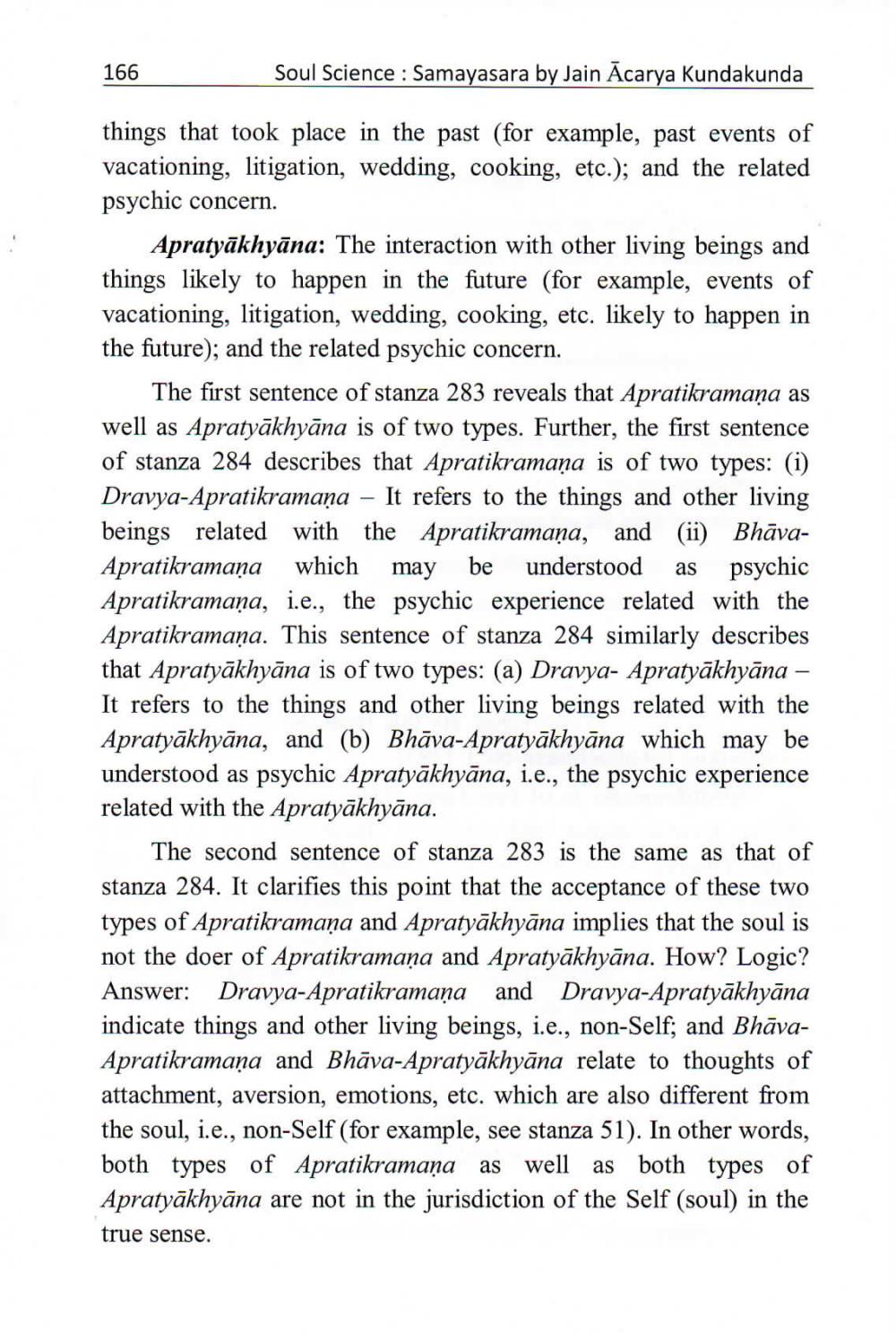________________
166
Soul Science : Samayasara by Jain Ācarya Kundakunda
things that took place in the past (for example, past events of vacationing, litigation, wedding, cooking, etc.); and the related psychic concern.
Apratyākhyāna: The interaction with other living beings and things likely to happen in the future (for example, events of vacationing, litigation, wedding, cooking, etc. likely to happen in the future); and the related psychic concern.
The first sentence of stanza 283 reveals that Apratikramaņa as well as Apratyākhyāna is of two types. Further, the first sentence of stanza 284 describes that Apratikramaņa is of two types: (i) Dravya-Apratikramaņa – It refers to the things and other living beings related with the Apratikramaņa, and (ii) BhāvaApratikramaņa which may be understood as psychic Apratikramaņa, i.e., the psychic experience related with the Apratikramana. This sentence of stanza 284 similarly describes that Apratyākhyāna is of two types: (a) Dravya- Apratyākhyāna - It refers to the things and other living beings related with the Apratyākhyāna, and (b) Bhāva-Apratyākhyāna which may be understood as psychic Apratyākhyāna, i.e., the psychic experience related with the Apratyākhyāna.
The second sentence of stanza 283 is the same as that of stanza 284. It clarifies this point that the acceptance of these two types of Apratikramaņa and Apratyākhyāna implies that the soul is not the doer of Apratikramaņa and Apratyākhyāna. How? Logic? Answer: Dravya-Apratikramaņa and Dravya-Apratyākhyāna indicate things and other living beings, i.e., non-Self; and BhāvaApratikramaņa and Bhāva-Apratyākhyāna relate to thoughts of attachment, aversion, emotions, etc. which are also different from the soul, i.e., non-Self (for example, see stanza 51). In other words, both types of Apratikramaņa as well as both types of Apratyākhyāna are not in the jurisdiction of the Self (soul) in the true sense.




